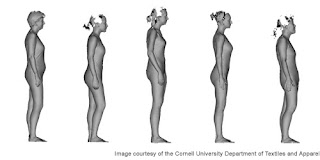Physical activities and health
Regular physical activity is one of the most important things you can do for your health. It can help:
• Control your weight
• Reduce your risk of cardiovascular disease
• Reduce your risk for type 2 diabetes and metabolic syndrome
• Reduce your risk of some cancers
• Strengthen your bones and muscles
• Improve your mental health and mood
• Improve your ability to do daily activities and prevent falls, if you're an older adult
• Increase your chances of living longer
If you're not sure about becoming active or boosting your level of physical activity because you're afraid of getting hurt, the good news is that moderate-intensity aerobic activity, like brisk walking, is generally safe for most people.
If you have a chronic health condition such as arthritis, diabetes, or heart disease, talk with your doctor to find out if your condition limits, in any way, your ability to be active. Then, work with your doctor to come up with a physical activity plan that matches your abilities. If your condition stops you from meeting the minimum Guidelines, try to do as much as you can. What's important is that you avoid being inactive. Even 60 minutes a week of moderate-intensity aerobic activity is good for you.
The bottom line is - the health benefits of physical activity far outweigh the risks of getting hurt.
If you want to know more about how physical activity improves your health, the section below gives more detail on what research studies have found.
Control Your Weight
Looking to get to or stay at a healthy weight? Both diet and physical activity play a critical role in controlling your weight. You gain weight when the calories you burn, including those burned during physical activity, are less than the calories you eat or drink. For more information see our section on balancing calories. When it comes to weight management, people vary greatly in how much physical activity they need. You may need to be more active than others to achieve or maintain a healthy weight.
To maintain your weight: Work your way up to 150 minutes of moderate-intensity aerobic activity, 75 minutes of vigorous-intensity aerobic activity, or an equivalent mix of the two each week. Strong scientific evidence shows that physical activity can help you maintain your weight over time. However, the exact amount of physical activity needed to do this is not clear since it varies greatly from person to person. It's possible that you may need to do more than the equivalent of 150 minutes of moderate-intensity activity a week to maintain your weight.
To lose weight and keep it off: You will need a high amount of physical activity unless you also adjust your diet and reduce the amount of calories you're eating and drinking. Getting to and staying at a healthy weight requires both regular physical activity and a healthy eating plan. The CDC has some great tools and information about nutrition, physical activity and weight loss.
Reduce Your Risk of Cardiovascular Disease
Heart disease and stroke are two of the leading causes of death in the United States. But following the Guidelines and getting at least 150 minutes a week (2 hours and 30 minutes) of moderate-intensity aerobic activity can put you at a lower risk for these diseases. You can reduce your risk even further with more physical activity. Regular physical activity can also lower your blood pressure and improve your cholesterol levels.
Reduce your risk of Type 2 Diabetes and Metabolic Syndrome
Regular physical activity can reduce your risk of developing type 2 diabetes and metabolic syndrome. Metabolic syndrome is a condition in which you have some combination of too much fat around the waist, high blood pressure, low HDL cholesterol, high triglycerides, or high blood sugar. Research shows that lower rates of these conditions are seen with 120 to 150 minutes (2 hours to 2 hours and 30 minutes) a week of at least moderate-intensity aerobic activity. And the more physical activity you do, the lower your risk will be.
Reduce Your Risk of Some Cancers
Being physically active lowers your risk for two types of cancer: colon and breast. Research shows that:
• Physically active people have a lower risk of colon cancer than do people who are not active.
• Physically active women have a lower risk of breast cancer than do people who are not active.
• Build strong, healthy muscles. Muscle-strengthening activities can help you increase or maintain your muscle mass and strength. Slowly increasing the amount of weight and number of repetitions you do will give you even more benefits, no matter your age.
• Improve Your Mental Health and Mood
• Regular physical activity can help keep your thinking, learning, and judgment skills sharp as you age. It can also reduce your risk of depression and may help you sleep better. Research has shown that doing aerobic or a mix of aerobic and muscle-strengthening activities 3 to 5 times a week for 30 to 60 minutes can give you these mental health benefits. Some scientific evidence has also shown that even lower levels of physical activity can be beneficial.
Increase Your Chances of Living Longer
Science shows that physical activity can reduce your risk of dying early from the leading causes of death, like heart disease and some cancers. This is remarkable in two ways:
1. Only a few lifestyle choices have as large an impact on your health as physical activity. People who are physically active for about 7 hours a week have a 40 percent lower risk of dying early than those who are active for less than 30 minutes a week.
2. You don't have to do high amounts of activity or vigorous-intensity activity to reduce your risk of premature death. You can put yourself at lower risk of dying early by doing at least 150 minutes a week of moderate-intensity aerobic activity.
Everyone can gain the health benefits of physical activity - age, ethnicity, shape or size do not matter.








